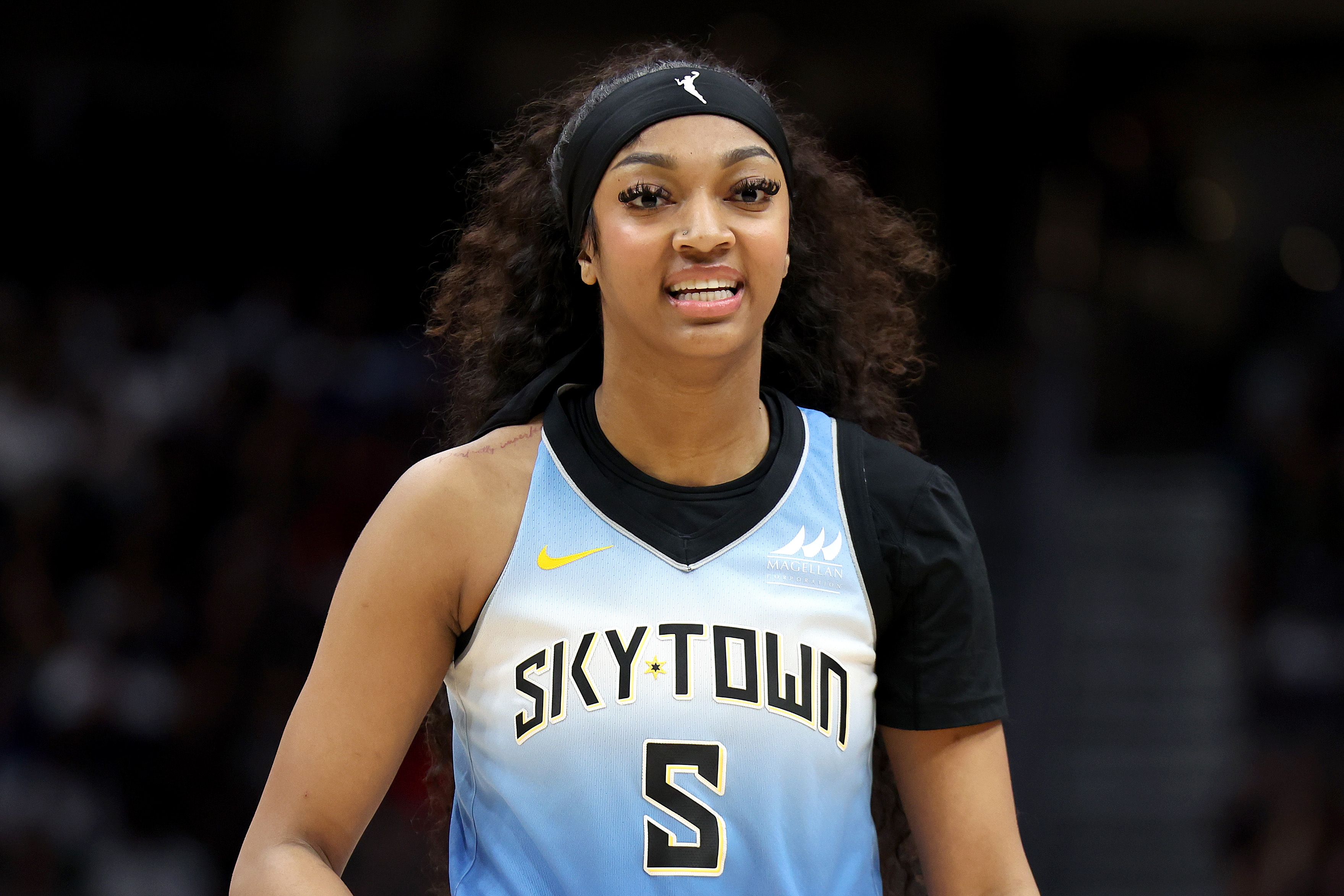In a shocking revelation made by Stephen A. Smith, one of the most prominent voices in sports media, it has come to light that Angel Reese, the star forward of the LSU Tigers, may have been covertly excluded from the upcoming All-Star ballot. According to Smith, this decision is allegedly a form of retribution for Reese’s actions during a heated game against Iowa’s Caitlin Clark. The news has sent shockwaves through the sports world, igniting a heated debate about accountability, fairness, and the role of the media in shaping athletes’ careers.

At the center of this controversy is Angel Reese, a rising star in women’s basketball who helped lead LSU to a national championship. Known for her fiery personality and competitive spirit, Reese has become a polarizing figure in the sport. During the NCAA Women’s Basketball Championship game earlier this year, Reese engaged in what some deemed unsportsmanlike behavior towards Caitlin Clark, a fellow basketball phenom from Iowa. The incident involved Reese mimicking Clark’s celebratory gestures, including the now-famous “you can’t see me” taunt, as LSU secured their victory.
While some fans and analysts celebrated Reese’s actions as a display of confidence and competitiveness, others criticized her for what they perceived as excessive and disrespectful behavior. The debate over her conduct quickly transcended the sports world, sparking conversations about double standards, race, and gender in athletics. Now, with the revelation of her alleged exclusion from the All-Star ballot, those conversations have taken on a new level of urgency.
Stephen A. Smith, never one to shy away from controversy, has been vocal in his defense of Reese. In a recent segment on his show, he called out the media for what he described as a “calculated and unjust” attempt to punish the young athlete. “This is not about sportsmanship,” Smith argued. “This is about control. This is about sending a message to Angel Reese and every other young athlete out there: ‘You step out of line, you don’t play by our rules, and we will erase you.’”
Smith’s comments have sparked a firestorm of reactions. Supporters of Reese have rallied behind her, accusing the media of unfairly targeting a young Black woman for behavior that would likely be celebrated if exhibited by a male or white athlete. They point to the widespread praise Caitlin Clark received for her own trash-talking and competitive antics during the tournament, arguing that Reese is being held to a different standard.
“Why is it that when Caitlin Clark does it, it’s passion, but when Angel Reese does it, it’s disrespect?” one fan wrote on social media. “The double standard is glaring, and it’s disgusting.”
Critics, however, argue that the decision to exclude Reese from the All-Star ballot is not about race or gender but about maintaining the integrity of the game. “Sportsmanship matters,” one commentator wrote. “If we don’t hold athletes accountable for their behavior, we risk turning the game into a circus.”
But is this really about sportsmanship, or is it something deeper? The exclusion of Angel Reese from the All-Star ballot, if true, raises serious questions about the power dynamics in sports. Who gets to decide what is acceptable behavior, and who gets to enforce those standards? More importantly, who is held accountable when those standards are applied unevenly?
The media plays an outsized role in answering these questions. As gatekeepers of public opinion, journalists and commentators have the power to shape narratives and influence how athletes are perceived. In Reese’s case, the narrative has been anything but consistent. While some outlets have portrayed her as a villain, others have celebrated her as a trailblazer who refuses to conform to outdated expectations of how women, particularly Black women, should behave.

This inconsistency is not new. Throughout history, Black athletes have often been held to higher standards of conduct than their white counterparts. From Jackie Robinson to Serena Williams, many of the greatest athletes of all time have faced scrutiny not just for their performance on the field but for their demeanor off it. Angel Reese is the latest in a long line of athletes to find herself at the center of this ongoing struggle.
If the media has indeed decided to exclude Reese from the All-Star ballot, it sets a dangerous precedent. It sends a message that athletes who don’t conform to certain expectations can be punished in ways that go beyond the court. It also raises questions about transparency and accountability in the decision-making process. Who decides which players make the ballot, and what criteria are they using? If Reese’s exclusion is based on her behavior, why hasn’t the same standard been applied to other athletes
For Angel Reese, this controversy is likely to be just another chapter in a career that has already been marked by both triumph and adversity. At just 21 years old, she has already proven herself to be one of the most talented and resilient players in the game. Whether or not she makes the All-Star ballot, her impact on women’s basketball is undeniable.
As the debate continues, one thing is clear: this is about more than just basketball. It’s about fairness, accountability, and the power of the media to shape the careers of young athletes. Whether you see Angel Reese as a hero, a villain, or something in between, her story is a reminder that the game is never just a game. It’s a reflection of the society we live in and the values we choose to uphold.
In the end, the question isn’t whether Angel Reese deserves to be on the All-Star ballot. The question is whether the process that led to her exclusion—if true—is fair, transparent, and free from bias. Until those questions are answered, the controversy surrounding her will continue to overshadow the game she loves. And that, perhaps, is the greatest injustice of all.


